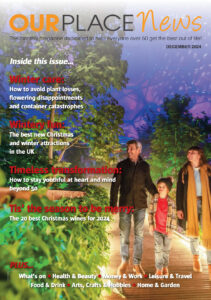These days, slow and steady is what wins the race – and he’s very happy with that.

After representing Great Britain for 14 years as an athlete, racking up 15 major championship wins including three Olympic medals along the way, Roger Black knows what it takes to push his body to its limits. Running is now so much more than winning medals.
“I do think less is more,” says Black, 55. “A little bit every day is far better than getting so pumped up at the gym that you can’t walk in the morning. My message is always just do a little bit every day, let your body adjust, build it up – and just pat yourself on the back for
that. It’s about the accumulation over time with fitness, sticking with it.”
Hampshire-born Black, who competed as an individual 400m runner and in the men’s 4x400m relay, retired at the end of the Nineties. The adjustment can be notoriously difficult for pro athletes and sportspeople when the intense regimes and targets they’ve built their lives around for years suddenly fall away. Black is grateful that for him it “was fine”. “The day I retired, the drive and desire to set new physical challenges disappeared. A lot of former professional athletes keep that level up, because they love that adrenalin rush.
I don’t have that. I’m not somebody who needs to take on a big physical challenge.” Instead, he seized the opportunity to do things
he hadn’t been able to while competing, like tennis, skiing and playing lots of football (“I wasn’t able to play when I was an athlete
because I just couldn’t risk it”) as well as TV appearances, motivational speaking and launching his home fitness equipment brand.
Black, who is married to Jules and lives in Guildford, Surrey, did eventually get back into running – but we’re talking a half-hour “gentle jog” after dropping his twin sons, now 16, off at school. “Obviously like any parent, it’s all based around the kids and work,” quips Black, who also has a 21-year-old daughter. Often, he’ll jog in the woods near their home: “I don’t run on the roads anymore,” Black notes, admitting his knees aren’t what they used to be.
It might be a far cry from his championship days, but movement is still a key part of his life, while “just getting outside” boosts his mental wellbeing. “I need to get my heart rate up,” he says. “If I don’t manage to do that for a couple of days, I notice it. When I was an athlete, it was all about trying to run faster, but now it’s more mental than physical for me.”
That said, he has always been aware that we can’t “take our health for granted”. At age 11, Black was diagnosed with a congenital heart condition (“I was born with a leaky heart valve”), which meant annual check-ups, always with a question mark over whether he’d be told to stop running. Thankfully in his case, it didn’t cause major problems or halt his career – but it has given him a deep appreciation for respecting his body. Black also credits it for helping him adjust to retirement.
“I think a part of that is probably, subconsciously, I’ve always had my heart condition. It’s a weird thing – it was always there and it didn’t stop me – but I think when I stopped [competing], a part of me said, ‘You just need to respect that now’,” he explains. “Exercise
now is as important to me as it was when I was an athlete but for completely different reasons. It’s not about winning medals, it’s about staying healthy.”
This ethos runs through his business, Roger Black Fitness, too. The range, which specialises in exercise bikes, treadmills, rowers and cross trainers, was first sold through Argos from 2006. But last year, Black launched the brand’s own online shop and decided to embrace a more hands-on approach, managing it himself. He’s relished the opportunity to connect with customers, many of whom are in their 40s, 50s, 60s and above.
“We had an enquiry the other day from an 80-year-old lady – and this is the bit of the business that I love – saying, ‘I’m looking at your treadmill but I’m 80 and I’ll need to put it away after using it and I don’t know if I’m too old to do that’. So I just did a little video and showed her what it takes [to fold and put away the treadmill] and gave her the option to choose whether it was too heavy for her. I love that we can answer those questions directly,” Black enthuses.
One of his aims is to help make exercise more accessible – and less intimidating – for all age groups, particularly the more mature end of the market. The industry is constantly evolving with new trends and class formats, but sometimes, isn’t there a lot to be said for keeping things simple?
“100 per cent,” Black agrees. “I like to use the phrase ‘moving’ rather than ‘fitness’. If we really have to nail down what we’re encouraging people to do, it’s to move. Whether we’re choosing to walk somewhere or get in the car, to take the stairs or get in the lift – it’s those little life choices we make.
“And the thing with exercise is, well it’s the case for me anyway, it only really works when it’s a habit and becomes part of your daily routine. So, we take the kids to school then go for a run. A lot of people buy a folding bike and then while they’re watching EastEnders, they’ll ride the bike. I think that is one of the big secrets… We’re trying to keep it simple and effective.”
(Story source: Silver Surfers)

